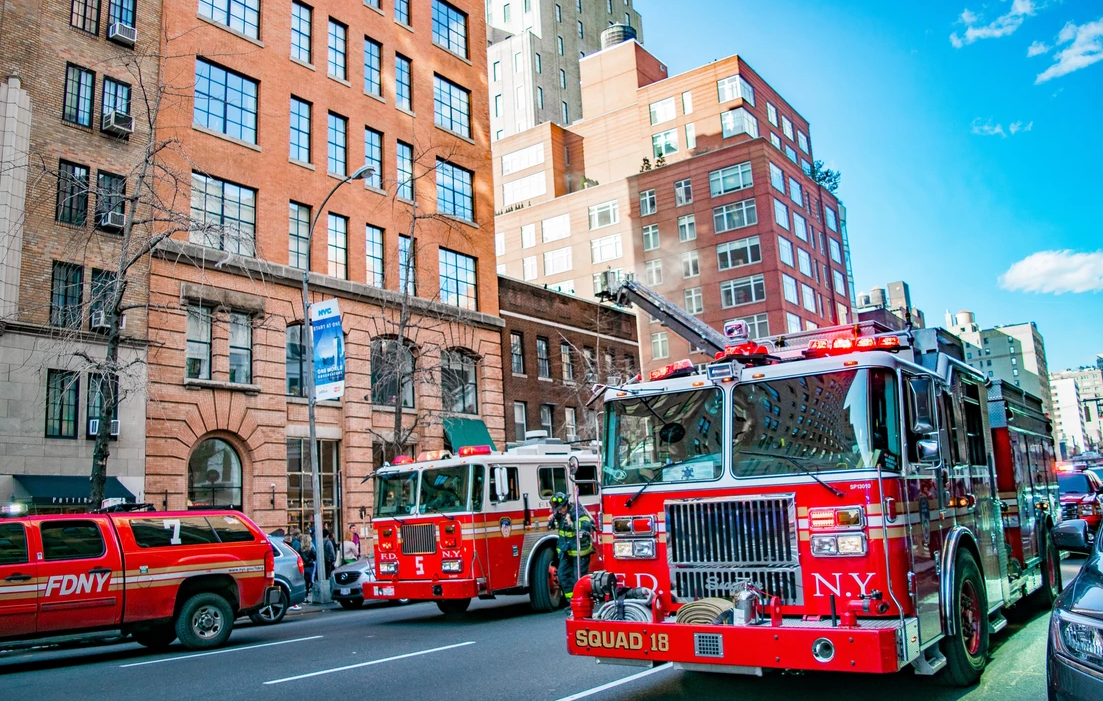Natural disasters and man-made decisions to curb them, have left millions in the dark as fires rage in California just a few weeks after a series of earthquakes rattled key economic centers in the state. Across the country, we also see issues with sea level rise, flooding, and severe weather storms. Globally, we witness severe weather incidents from typhoons in Japan to decreased crop yields from drought. As business leaders today, we must be prepared for the unexpected. The following tips are designed to reduce your risk and keep your talent safe. If you haven’t had a safety talk at work for a while, now might be a great time to use this information to have a conversation on preparedness.
Tip 1. Keep It Full – It’s important to keep your devices charged up during the day and to keep your gas tank above 1/4 full. As the frequency of incidents rise, ensure that you have spare batteries to charge your electronics, a portable generator that is in working condition for your business or home to power key devices, and fuel in your gas tank so you can move to a safe destination. You should also keep a full emergency kit for the number or employees or family members onsite in each space because first responders will be limited in their ability to respond to every 911 as demand exceeds resources in the first 72 hours of a major incident. And, if you’re still wearing suits and ties at work, make sure you have a gym bag with tennis shoes, gym shorts, and a long sleeve t-shirt in case you can’t make it home. Clothing and safe footwear are important in hazardous environments.
Tip 2. Use Your Space Wisely – In the event of major disasters, people may not be able to go home. Does your office have portable solar showers, extra water, N-95 filtration masks, hand sanitizer, non-perishable food, and a few air mattresses or pillows? While this might sound crazy, this is preparedness. Your workplace might be the safest place to stay as it has filtered air, a maintenance crew, backup diesel generator, and a community of talented people who can work together to create solutions to the current problem. Workplaces should also consider allowing family members to seek refuge and implement security policies to do so as part of the resiliency plan. Safe places and non-traditional sleeping accommodations will be needed as disasters strike.
Tip 3. Travel Like a President – Executives are spending more time on international business trips as our economies are interconnected. Business leaders who are sent overseas need to have a list of local, for-profit healthcare facilities that are recognized and accredited, including distance from key meeting points or hotel; their trip filed with the State Department, personal healthcare info translated in the local language to include any allergies or serious conditions, instructions on how to receive remote care, payment methods if they are ill (some places require cash in the local currency up-front), safety precautions, political climate briefing (customs, local laws, cultural competencies), safe spaces for expats, and contact info for the local American embassy. Ensure that you are doing some due diligence before you send your top talent overseas and if you are an entrepreneur on your own, be smart and follow this advice.
Tip 4. Carry Cash – ATMs rely on electricity and may likely be out of service during a natural disaster. Cash can get you out of a bind with the ability to purchase things from an airplane ticket to evacuate, food, and lodging. While you want to believe people will help you for free in an emergency if you don’t have money, that is not always the case as we’ve seen with cases of water price gouging from retailers during natural disasters. Carry cash so you have a backup means of currency and don’t spend this on day to day items. If you can keep some on you at work and at home, great! Cash is king in disasters! Start out with $100 per person in your family, at minimum.
Tip 5. Get Out Early – People put other people in danger because they want to go down with the ship, so to speak. If your area has evacuation warnings or common sense tells you that things are going to get worse before they get better, it’s time to get moving. Take the key items you truly need and know that the rest can be replaced. While first responders are there to help, do not put their lives in added danger because you refuse to evacuate. First responders have families who want to see them get home, so don’t be selfish. If you have the ability to take some vacation time, take a few days to a smoke free zone to clear your lungs, meditate the stress away, and re-focus so you can respond instead of react. Common sense is truly your best friend in any disaster if you will listen to it. Get out early and stay out until authorities have deemed it safe to return. While the initial disaster can end, things like toxic waste, loose electrical, off gassing of harmful fumes, unstable roadways, etc. can still present threats.
Tip 6. Blow The Whistle – Keep a whistle on your key chain so you can alert first responders of your presence in the event of a structural collapse. These are also handy when you travel to alert bystanders if you are a victim of street crime. Thank you to my friend Ana-Marie Jones for her expert preparedness tip!
Tip 7. Train Often – Your family and business needs to conduct disaster and emergency response drills. Do you know how to evacuate and where to meet up? Do you know the traffic flow out of your stairwells and the possible hazards waiting for you if you do evacuate to street level? Do you know alternative routes in and out of your city? With anything in life, training reinforces the skills needed to think critically and to act efficiently. Up your training plan to ensure you address natural disasters and incidents of workplace violence to keep your teams safe. Something as simple as a routine lunch can be made into a fun scavenger hunt from workplace to lunch as people collect observations and share thoughts on using alternative means of egress to get to their destination.
Tip 8. Hire a Pro – Companies from small to large can benefit from hiring a professional to develop an emergency response plan. A lot of these professionals come from law enforcement, fire safety, and military backgrounds. Whether you need high level executive protection or threat assessments done, consider asking a professional to evaluate your current recommendations and policies. Ensure you get creative in the brainstorming process so you have a resiliency plan that works for your company and your talent. If you employ people with disabilities, you also need to take special consideration of how you will assist them in a time of crisis, as roadways and stairwells may not be suitable for wheelchairs or the elderly.
Tip 9. Update Your Data – Companies typically collect emergency contact info when people are hired. As we know, a lot changes in life from divorces to deaths, so make sure you update your personal data with HR on who you want contacted in case of an emergency. Executive Assistants should also create a backup of team members’ data with HR on a quarterly basis. The last thing you would want is for HR to call your ex and not have them answer in a time of need…oops. Relevant data is the key to communication in our digital era. If you are on social media, you can let people know you are safe after you have taken care of mandatory evacuation and safety needs. From a resiliency standpoint for businesses, consider backing up key customer contact info, payment information, and anything critical to your operations to the cloud so you can access it 24/7 if your hardware does not work. Keep your data up to date.
Tip 10. Take a First Aid Class or NERT Course – The reality is, we just do not have enough first responders when multiple large scale incidents break out. We’ve seen agencies come from as far as New Jersey to the west coast during peak fire storms to provide assistance. While your local fire station looks staffed, first responders are working overtime in the department and out on the front lines. Local fire departments offer Neighborhood Emergency Response Training courses throughout the year and have teams of dedicated community members who are ready to respond. Building strong communities starts with you! You can learn basic first aid skills to keep people alive and learn how to triage who needs immediate medical help vs. those who can wait. Take your strategic planning mindset into the field of emergency response for a few weekends as you learn new skills to strategize ways to keep you safe.
I hope these tips help you think about preparedness in a holistic way. While technology is shaping our communities on a daily basis, we’ve seen time and time again, that true community and human connection shape the outcomes of major events. From Capt. Sully landing the airplane in the Hudson River to the FDNY first responders on 9-11 to locals in countries without many resource responding day in and day out, preparedness starts with you! You too can be a hero if you are prepared.



